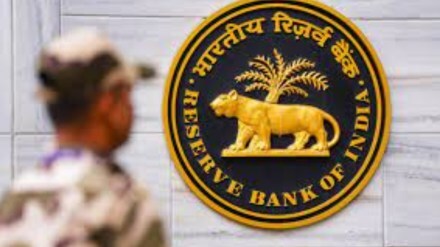Money market participants are expecting another variable rate repo (VRR) auction in the coming week amid low liquidity due to outflows on account of GST (goods and services tax) payments.
With the liquidity in the banking system coming down below the Rs 1-lakh-crore surplus, call rates rose 23 basis points above the repo rate on Friday.
Following the movement, the Reserve Bank of India conducted a 6-day VRR for Rs 25,000 crore on Friday. It received bids worth Rs 35,420 crore from banks, compared with the notified amount of Rs 25,000 crore, reflecting the need for funds from lenders, said market participants.
This is the second such auction that the RBI has conducted following the change in the stance to neutral from withdrawal of accommodation.
As the auction was oversubscribed, banks are expecting another 6-day VRR and one 3-day VRR. With outflows on account of GST payments and payment of government securities that were auctioned on Friday, and a slowdown in the pace of government’s month-end spending, chances of the RBI coming up with more VRRs are high, said market participants.
Usually, the government’s month-end spending hit the banking system in the last two days of any month. Therefore, till then, banks have to maintain adequate cash reserves due to reporting Friday, which is on November 29.
“Overnight rates shot up to near MSF (marginal standing facility), affecting the MIBOR (Mumbai Interbank offered rate) band. Next few days, I believe, government spending won’t come as huge as it came for last three months. Hence, they (RBI) came up with VRR to keep the overnight rate aligned to the repo rate,” said a dealer with a private bank.
Market participants are expecting a slowdown in government month-end spending. Around Rs 60,000-70,000 crore are expected to come in form of salaries and pensions. In the last three months, the average government spending was around Rs 1.5 lakh crore, leading huge surplus in the banking system.
Surplus liquidity in the banking system shrank to Rs 84,154.75 crore due to monthly GST outflows. Around Rs 1.8 lakh crore went out of the system as GST payments and services tax outflows.
Banks are worried that more foreign outflows from the equity market and RBI’s intervention in the foreign exchange market may dry up the liquidity, driving cost of funds upwards.
So far in November, the rupee has weakened nearly 0.5% to 84.45/$1 and foreign investors have sold Indian stocks and bonds worth $4 billion, depository data showed. Likely intervention by the RBI has capped the rupee from depreciating further, currency dealers said.
